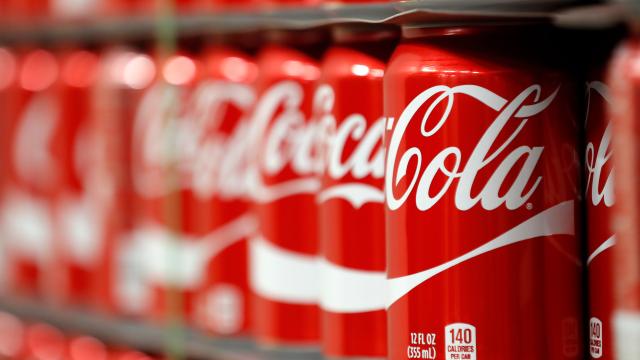Soft drink companies have fought tooth and nail to hold onto their customers, even as public health experts and governments have tried to get people to cut down on the sugary products they make. But a new investigative report in the BMJ highlights just how far Coca-Cola in particular has gone to protect its profits across the globe.
For year, the report alleges, Coke has quietly influenced how China tried to tackle growing rates of obesity among its residents.
In 2013, report author Susan Greenhalgh, an anthropologist at Harvard University who has long studied science policy in China, began corresponding with obesity scientists in China. She was originally interested in understanding and chronicling the history and science surrounding obesity in the country.
China, like many countries, has seen its obesity rate climb over the years, though its rise has been especially pronounced. In 1991, for instance, some 20 per cent of Chinese citizens were obese, but by 2011, that percentage had risen to 42 per cent.
Those initial conversations led her and eventually her co-authors down a deep rabbit hole.
“The major takeaway is that Coca-Cola’s influence is global,” Greenhalgh told Gizmodo. “It has been able to quietly influence the science and policy of chronic disease, including obesity.”
Greenhalgh’s report centres around the International Life Sciences Institute (ILSI), a nonprofit organisation, think-tank, and corporate interest group founded in the 1970s by a Coca-Cola executive.
The ILSI’s funding continues to be primarily sourced from private companies across a variety of industries, and the ILSI in turn regularly funds or promotes industry-friendly scientists and research. Most infamously, the ILSI was once accused by the World Health Organisation of having received money from the tobacco industry that it used to promote research downplaying the effects of secondhand smoke.
The ILSI now has more than a dozen branches in several countries, including China. And according to Greenhalgh and her co-authors, the ILSI-China’s relationship with the Chinese government is particularly close-knit. For years, they claim, the organisation has led the way in guiding public health research and priorities in the country.
From 2004 to 2015, for instance, they found that ILSI-China had sponsored or co-sponsored six international obesity conferences (sometimes, but not always, Coca-Cola was listed as a sponsor as well), advertised as a way for Chinese scientists to correspond with and learn from those outside of the country.
These conferences often featured scientists who promoted the idea that fitness, not diet, plays the key role in preventing and lowering obesity rates; oftentimes, these scientists had received money from the industry.
But while being active is obviously important for good health, research has consistently shown that exercise doesn’t really help people lose weight at all. Other research has shown that the more we eat unhealthy foods, including soft drinks, the more likely we’ll become overweight.
Regardless, Greenhalgh said, their investigation also found that China has essentially carried out the bidding of the soda industry in minimising its responsibility for growing obesity rates. ILSI-China’s headquarters are even located inside the Chinese Center for Disease Control and Prevention, the Chinese equivalent of the CDC in the U.S.
“Though the effect on official obesity policy cannot be precisely measured, China’s policies aligned well with Coke’s position as transmitted through ILSI-China,” the report read. “Hard hitting dietary policies recommended by the World Health Organisation — taxing sugary drinks and restricting food advertising to children—were missing, and national plans and targets emphasised physical fitness over dietary restrictions.”
That Big Soda wants to avoid blame for the obesity crisis is no real secret. In 2015, the New York Times highlighted efforts by Coca-Cola to jumpstart another front group that promoted exercise over diet as the cure to obesity’s ills.
But after months of criticism, the group was shut down. And in the U.S. at least, Coca-Cola’s sugary hold on the public is slowly losing its grip. In 2017, total sales of soda in the country dropped for the 12th year in a row, and the industry as a whole has shifted to promote diet or non-soda brands, like Vitaminwater, which is owned by Coca-Cola.
“But we need to keep an eye out on what the industry is doing,” Greenhalgh said. “Because it needs to grow profits, and often, the products aren’t healthy.”
Greenhalgh noted that doesn’t have the sort of free press that the U.S. and other countries affected by the obesity crisis do; Chinese state-run publications are not free to criticise the government’s relationship with Coca-Cola. And in her conversations with Chinese scientists, she also found they weren’t as bothered by the industry’s close ties to their work and public health policy as scientists elsewhere are increasingly becoming.
“In places like China, there’s just no watchdog organisation there,” she said.
Neither Coca-Cola, ILSI-China, nor the Chinese health ministry responded to Greenhalgh and her co-authors before their report went live.
“We’ll see how they’ll respond now,” she said.
Gizmodo has reached out to Coca-Cola for comment and will update this post when we hear back.
